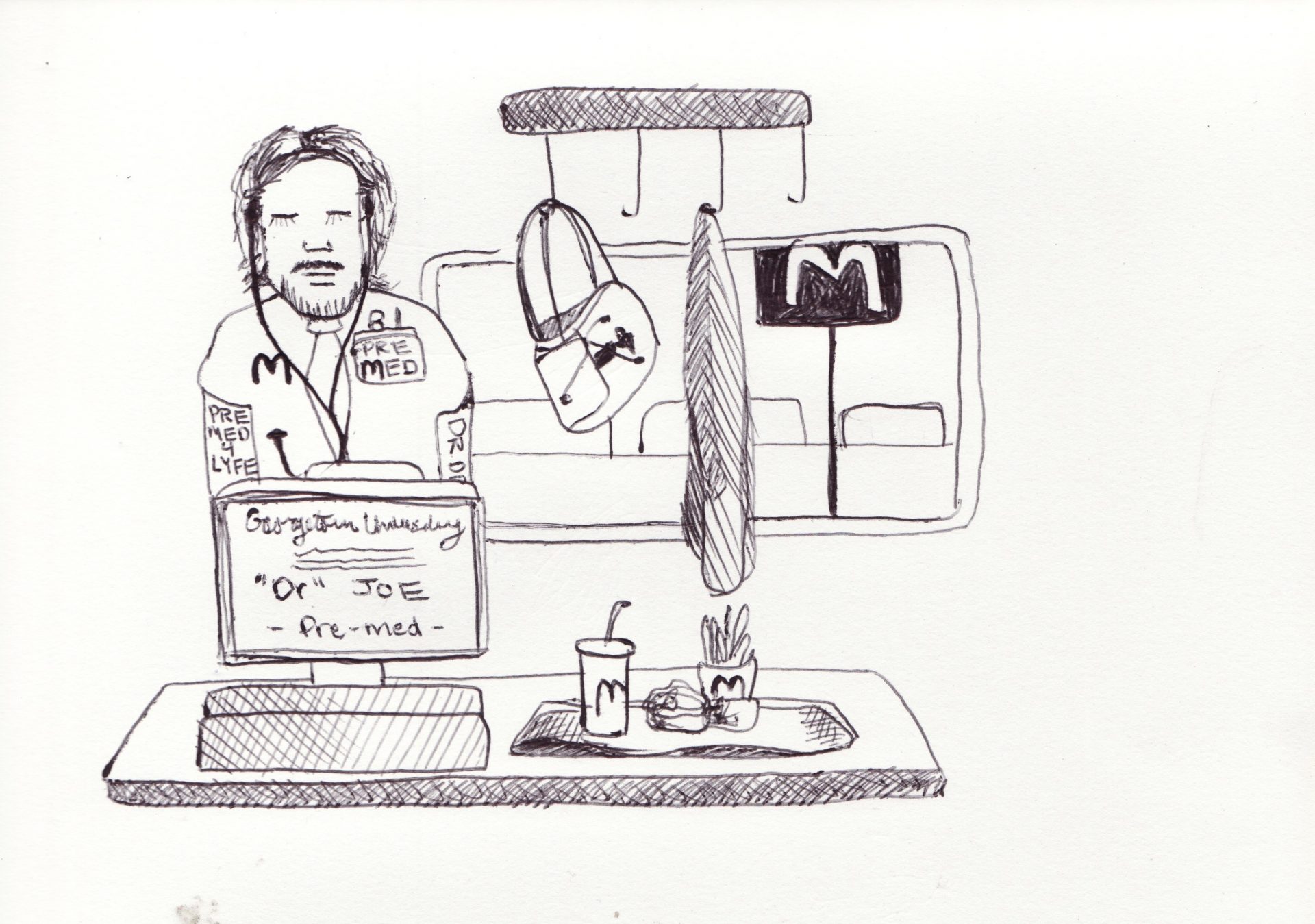As I toured the Georgetown campus as a prospective student, I felt a mixture of awe, anticipation, and mind-numbing fear about what the next few years would bring. But, even as a young and naïve 17-year-old, I knew I wanted to apply to medical school, and so I was excited to hear there would be a pre-med advisor to help me through the three years of prerequisites and then the terrifying application process. Unfortunately, after the end of my four years, I had yet to meet this elusive pre-med advisor who was supposedly critical in my acceptance to medical school.
During my first two years at Georgetown, I didn’t have any interaction with the Pre-Medical Studies faculty. The only advising for freshman and sophomore pre-meds in the NHS came from my Dean, who gave me a list of course pre-requisites for applying to medical school. I already knew these, of course, in order to build my class schedules. The kind of advising I needed was how to build my resumé, improve my writing skills, and become a more attractive candidate to medical schools.
During my junior year, in anticipation of applying, I was finally alerted to a pre-med information session for my class. Instead of being informed by an official, however, a friend provided me with the date and time. Apparently I wasn’t on the pre-med student listserv. I didn’t even know that a listserv existed.
So, by word of mouth, I finally made it to this meeting sponsored by pre-med “advisors.” During it, I discovered that a Georgetown pre-med committee application was due in April with a personal statement, activities, and all four recommendations.
Who knew? Not me, and apparently not very many people. A friend of mine, also a current junior, did not realize that a Georgetown pre-med committee even existed until April 1. He almost missed the deadline for their premed committee application registration because he had no idea that this committee was necessary in order to recommend him for medical school. Top students and excellent candidates for medical school almost couldn’t apply because Georgetown failed to disseminate this information to them.
Once I realized that Georgetown would not be helping me with any information about the process at all, I started researching it myself. Soon I started the essay writing process. All good students know that a first draft needs extensive editing to become a final product. Unfortunately, I had nowhere to turn for this essay writing and editing expertise. The pre-med society website only had a power point slide on “Do’s and Don’ts” for your medical school essay. The “resource” tab on their website links you to other websites such as the Association of American Medical Colleges, rather than listing any faculty or resources on campus. And so I found myself sending my essays to my mother for editing. I was a 21-year-old college student and I had no one except my mother to give me feedback.
As a caveat to this point, there are some very good advisors at Georgetown, both in the NHS and the College. One of my friends had access to an excellent advisor who was instrumental in my friend’s medical school application process. But, unless you were one of the lucky few, there were no additional advisors assigned or available for you.
In the NHS, we have the amazing Dr. Allan Angerio, who gives advice on applying to medical school even though he is not an official pre-med advisor. Even so, he is not the appropriate resource for intense medical school essay editing, but rather a guide for larger questions.
The Pre-med Studies website claims to provide “group and individual advising to undergraduate students” but, other than general information sessions, I couldn’t find any resources to help me with this process when I went through it. If it does exist, they certainly didn’t publicize it. The only contact on the website is a generic “pre-med” e-mail address, while the rest of the website is riddled with broken links and empty pages.
Georgetown students are motivated and self-sufficient and so the University has luckily maintained a good rate of medical school acceptance, in spite of the pre-med advising provided here at Georgetown.
To provide more guidance, Georgetown should assign each pre-medical student a specific pre-med advisor upon learning they want to go to medical school. This advisor would remain with the student through all four years in order to advise on resumé strengthening, academic choices, timelines, MCAT preparation, and writing applications. Regular and publicized information sessions, as well as improving the pre-med website with up-to-date information would be helpful as well.
Although these are minimal suggestions, I hope that Georgetown takes steps to solve this problem because some of its most talented students struggle to achieve their goals due to the lack of advising at this institution.





http://prehealth.gwublogs.com/
It’s GWU’s blog, but it still has pretty good information about medical school, like answers to typical medical school questions, answers about the committee letter (a lot of students learn about this after it’s too late), and deadlines for research and part-time job opportunities. Hope it helps!